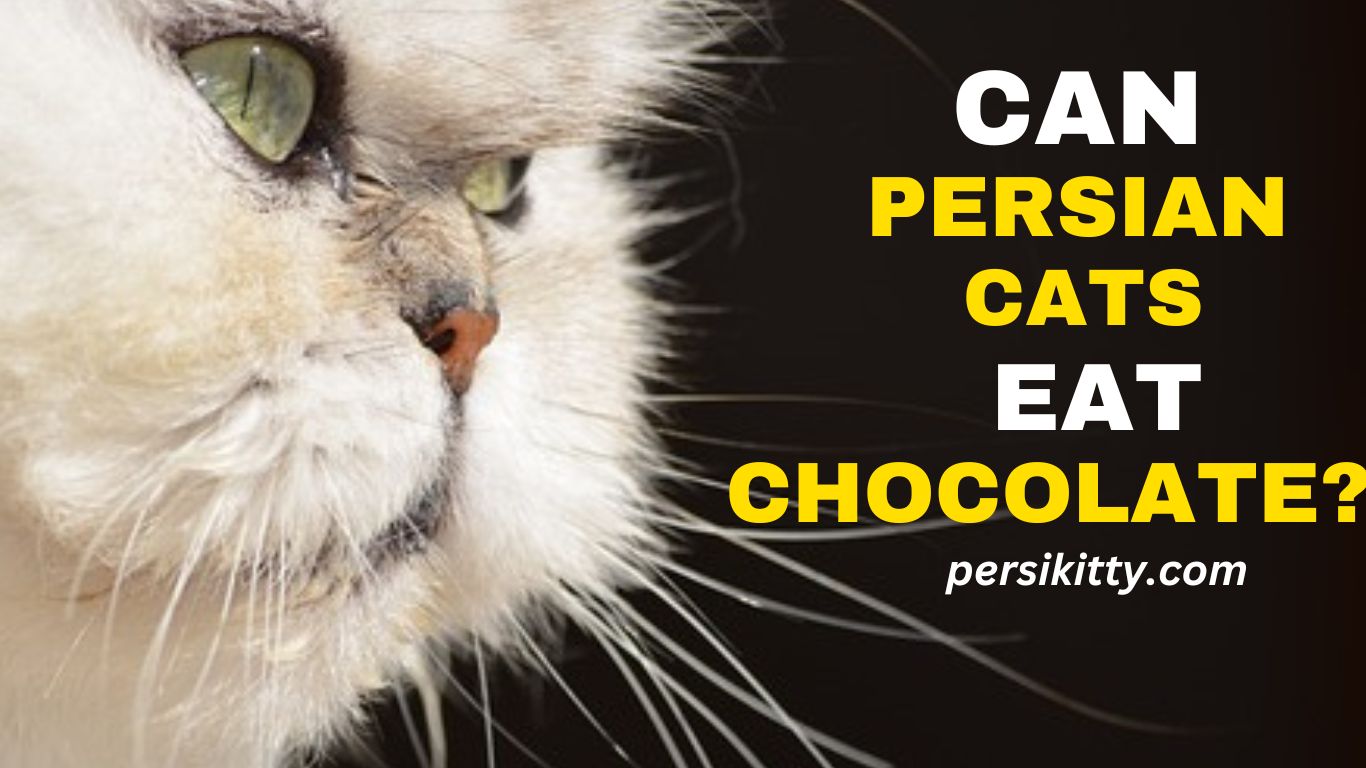Persian cats are one of the most beloved breeds, known for their luxurious long coats, sweet personalities, and those distinctive flat faces. If you’re lucky enough to have a Persian cat, you know how much joy they bring into your life.
But along with all that fluffy cuteness comes the responsibility of ensuring their health and safety, especially when it comes to their diet. Now, we all know that chocolate is a big no-no for dogs, but what about our feline friends?
Specifically, can Persian cats eat chocolate? The short answer is a resounding no. Chocolate is not just a treat for humans, but it’s a potential danger to our furry companions.
Understanding why chocolate is harmful to cats and knowing what to do if your Persian cat accidentally gets into some is crucial for every cat owner.
Table of Contents
- Why Chocolate is Dangerous for Persian Cats
- Symptoms of Chocolate Poisoning in Persian Cats
- What to Do If Your Persian Cat Eats Chocolate
- Preventing Chocolate Poisoning in Persian Cats
- Conclusion
Why Chocolate is Dangerous for Persian Cats
Chocolate contains two main components that are toxic to cats: theobromine and caffeine. These substances, known as methylxanthines, are harmless to humans in the amounts found in chocolate, but cats metabolize them much more slowly.
Even a small amount of chocolate can be dangerous for a cat, and this risk is particularly concerning for Persian cats due to their smaller size compared to some other breeds. Theobromine, in particular, affects a cat’s central nervous system and cardiovascular system.
This can lead to serious health problems, including tremors, seizures, and even heart failure in severe cases. Additionally, the fat and sugar content in chocolate can cause digestive upset in cats, leading to symptoms like vomiting and diarrhea.
It’s essential to recognize that all types of chocolate, whether dark, milk, or white, pose a threat to your Persian cat.
Symptoms of Chocolate Poisoning in Persian Cats
If your Persian cat has ingested chocolate, it’s important to be aware of the symptoms of chocolate poisoning. Early signs can include vomiting, diarrhea, and excessive thirst or urination. These symptoms occur because theobromine irritates the cat’s stomach and intestines and also affects their kidneys.
As the poisoning progresses, more severe symptoms may appear, such as restlessness, rapid breathing, increased heart rate, and muscle tremors. In the worst-case scenario, a cat can experience seizures, collapse, or even death.
Due to their flat-faced structure, Persian cats might already have some respiratory challenges, which can be exacerbated by chocolate poisoning.
This makes it even more critical to act quickly if you suspect your cat has eaten chocolate. Always remember that time is of the essence, and early intervention can be lifesaving.
What to Do If Your Persian Cat Eats Chocolate
If you find out that your Persian cat has eaten chocolate, don’t panic, but do act quickly. The first step is to try to determine how much chocolate your cat has consumed and what type. Dark chocolate is more dangerous than milk or white chocolate because it contains higher levels of theobromine.
If the amount is small, you might notice mild symptoms like restlessness or vomiting, but it’s still crucial to call your veterinarian immediately for advice. If the amount ingested is significant, or if your cat is showing severe symptoms like muscle tremors or rapid heart rate, you should take your cat to the vet right away.
While waiting to reach your vet, keep your cat calm and avoid giving them any more food or water until you’ve spoken to a professional. In some cases, the vet might advise inducing vomiting or providing activated charcoal to limit the absorption of the toxins.
Preventing Chocolate Poisoning in Persian Cats
Prevention is always better than cure, and this is especially true when it comes to chocolate poisoning in Persian cats. The best way to prevent your cat from eating chocolate is to keep it out of their reach.
Store all chocolate products in secure cabinets or containers that your cat cannot access. Remember, Persian cats are curious creatures, and they might be attracted to the sweet smell of chocolate, especially if it’s in something like a cake or cookie.
If you have kids or guests who might not know the dangers of chocolate to cats, make sure they’re aware and keep an eye on any treats that might be left out. Additionally, it’s a good idea to offer your cat treats that are specifically designed for felines.
There are plenty of safe and tasty alternatives that your Persian cat will love, which will keep them happy and healthy.
Conclusion
In short, Persian cats should never eat chocolate. Chocolate contains things that are very harmful to cats and can make them very sick or even worse. It’s important to keep chocolate and other dangerous foods out of reach to keep your cat safe.
If your Persian cat does eat chocolate by accident, call your vet right away and follow their advice. By being careful, you can protect your cat from chocolate and help them stay happy and healthy.
Related Articles:

1 thought on “Can Persian Cats Eat Chocolate?A Complete Guide!”